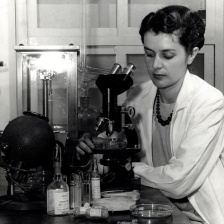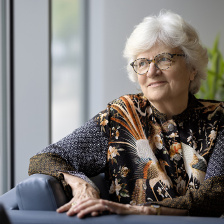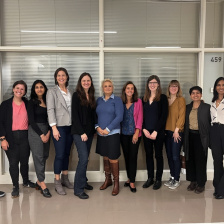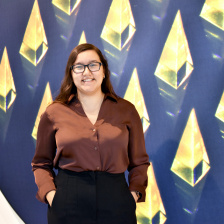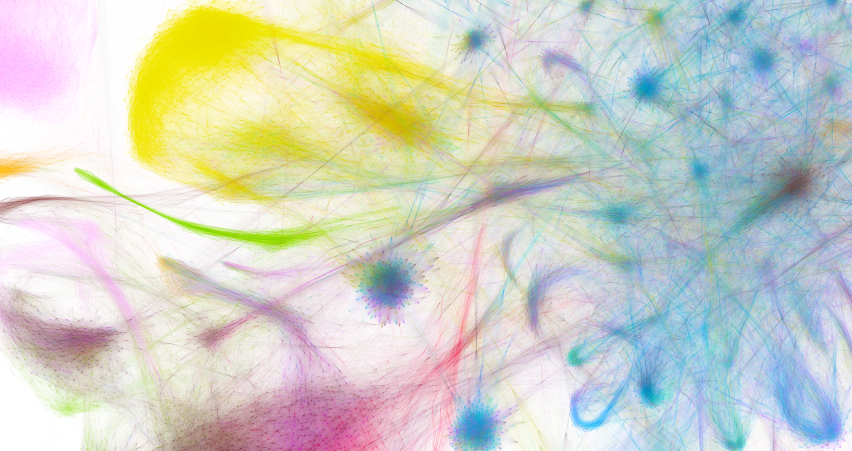
Shalek Lab researchers combined machine learning with RNA expression sequences of 45,782 cells from 14 organs to create this atlas of healthy cell physiology. Representing various cell subpopulations (dots) and their relationships (lines), this map of cell behavior may help studies of human diseases such as HIV and cancer. Credit: Carly Ziegler, Shaina Carroll, Leslie Kean, Alex Shalek (2019 Image Award winner)
Our Values
The Koch Institute was established to accelerate the fight against cancer by bringing researchers from diverse disciplinary perspectives to work together. We believe that the success of our endeavors depends on an equitable and inclusive research model that encourages and values contributions by individuals from all backgrounds and experiences.
We are committed to fostering a community where a diversity of opinions and backgrounds, including race, ethnicity, gender, sexual identity and orientation, ability, religion, and country of origin, is welcomed and celebrated.
To achieve this goal, the Koch Institute community shares the responsibility to advance equity and inclusion at all levels, among faculty, staff, and trainees. We are always working to improve the equity and inclusivity of our community through action that includes but is not limited to: expecting all members of our community to be respectful and compassionate in their interactions with one another and rejecting harassment, discrimination, and bullying; recruiting faculty, staff and trainees from diverse groups and taking steps to ensure members of these groups are supported and feel welcome; prioritizing the mental and physical health of our community members; improving our understanding around privileges and disadvantages associated with various identities and their intersections; and actively seeking out historically excluded voices and challenging unconscious biases to create a more equitable community.
These actions support our founding principles, strengthen our research, and increase the capacity of all Koch Institute members to have a positive impact on one another and the world.

Photo credit: Steve Boxall
The Koch Institute is a unique community that, through our commitment to cross-disciplinary collaboration, works to solve the most difficult problems in cancer. The KI brings people together with different experiences, backgrounds, and academic expertise and deeply values diversity of thought. We are committed to supporting a diverse community that fosters inclusion and belonging. Here, we work to ensure different perspectives related to cancer and beyond can be shared openly, respectfully, and thoughtfully.
Matthew Vander Heiden, Director
Meet the DEI Council
The Koch Institute DEI council is composed of faculty, students, postdocs, and research and administrative staff, and works in consultation with the KI's Diversity, Equity, and Inclusion Administrator, Kendra Delahunt.
The council can be reached by email at ki-dei-council@mit.edu (goes to all members). Our members are:
Members
- Andrea Garmilla, Graduate Student
- Ariana Barriero, Graduate Student
- Asheley Chapman, Postdoctoral Researcher
- Danielle Hardie, Histotechnician
- Elisabeth Abeyta, Technical Associate
- Farin Liani, Undergraduate Researcher
- Gillian Oaks, Graduate Student
- Grace Johnson, Graduate Student
- Irena Ravenska, Financial Assistant II
- Isaac Díaz Becdach, Technical Associate I
- Jessica Stark, Faculty
- Joelle Straehla, Clinical Investigator
- Jonuelle Acosta, Postdoctoral Researcher
- Karen Yee, Research and Program Manager
- Matthew Shoulders, Extramural Member
- Samantha Keogh, HR Coordinator
- Sandra Bartlett, Research Support Associate
- Shanu Mehta, Core Leader
- Sydney MacDonald, Program Manager
- Tahoura Samad, Postdoctoral Researcher
- Tigist Tamir, Postdoctoral Researcher
- Yanshu Shi, Postdoctoral Researcher
Ex Officio Members
- Sara Hellmold, Assistant Director, Stewardship
- Darrell Irvine, Associate Director
- Louisa Macy-Gulinson, Sr. Human Resources Manager
- Andreea O'Connell, Assistant Director for Administration
- Matt Vander Heiden, Director
